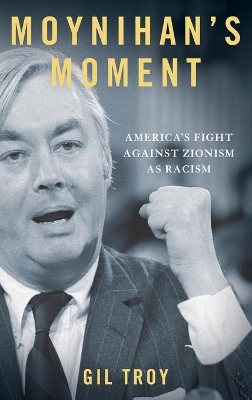On November 10, 1975, the UN General Assembly passed a resolution declaring Zionism a form of racism. The move shocked millions, especially in the United States- the country largely responsible for founding the UN. Daniel Patrick Moynihan, the American Ambassador to the UN, denounced this attack on Israel as an anti-Semitic assault on democracy and stood up to the Soviet-backed alliance of Communist dictatorships and Third World autocracies that supported the
resolution. His eloquent stand brought him celebrity in the U.S., but ultimately shortened his tenure at the UN by alienating American allies, adversaries, and much of the foreign policy establishment-including Secretary of State Henry Kissinger. Nevertheless, Moynihan's moment was a turning point: a
harbinger of a shift in American culture and politics that would culminate in the Reagan Revolution.
Moynihan paved the way for a more muscular, idealistic, neoconservative foreign policy and for a new style of defiant "cowboy" diplomacy. In this book, Gil Troy argues that America's idea of itself-still torn, in the mid-'70s, between post-Vietnam and -Watergate defeatism and a growing sense of optimism-changed with Moynihan, altering both the left and the right in ways that continue to play out in the 21st century. Much of the rhetoric of this era survives in domestic foreign policy debates
and the ongoing conflict between Israel and Palestine, suggesting that Moynihan's struggle has much to reveal about American politics and its position on the world stage.
- ISBN10 0199920303
- ISBN13 9780199920303
- Publish Date 20 December 2012 (first published 1 January 2012)
- Publish Status Active
- Publish Country US
- Imprint Oxford University Press Inc
- Format Hardcover
- Pages 368
- Language English
